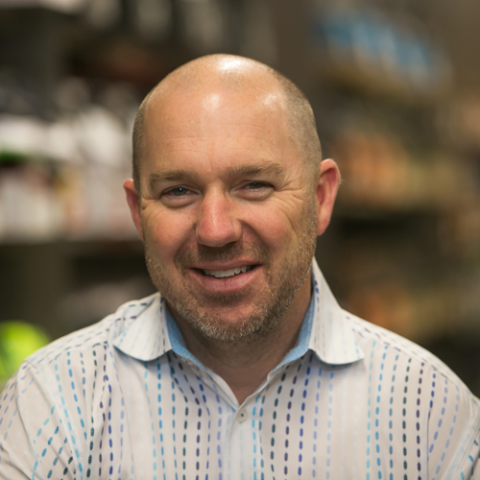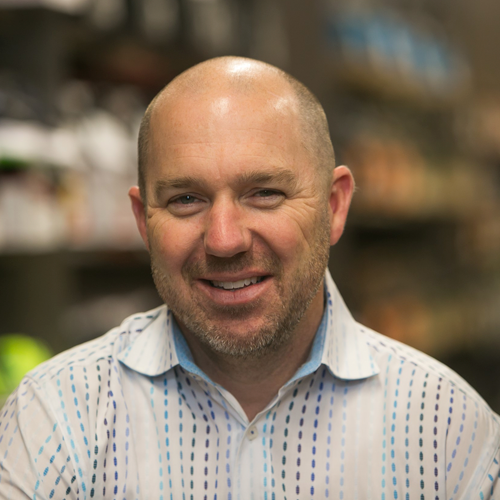

Pete Mohr is the Founder of Simplifying Entrepreneurship, a company that focuses on helping other business owners streamline their processes. Pete’s mission is to help others turn their frustrations into successes by cutting through life’s chaos so they can focus on the things that matter most. A self-proclaimed serial entrepreneur, Pete created a 5 part framework that he used to help him achieve success. Today, Pete spends his days coaching entrepreneurs, helping them to simplify their processes and operating procedures, so they can find the freedom they are looking for.
Pete knows that every business has its share of challenges. What matters is how prepared you are to pivot when things get difficult. Over the last few years, the world has changed drastically. Businesses across every industry have had to pivot and change direction if they wanted to survive. Using the 5P framework that he created, Pete has helped many entrepreneurs maintain their businesses during these uncertain times. Using the 5P framework allows entrepreneurs to take a step back from the day-to-day goings on in their business while maintaining strong leadership.
Many entrepreneurs have a hard time separating their businesses from their personal lives. Pete wants people to understand that while you own a business, it shouldn’t own you. Your business should be there to serve your lifestyle, not the other way around. When you find yourself working for your business, it’s time to make a switch and take your life back. When someone is ready to pull that switch, Pete gives them the tools they need to make the change. The 5P framework helps you set your business up to deliver what you want.
The 5P Framework consists of the following:
- Product
- Promise
- Process
- People
- Profits
Product: This is the item that your entire business is founded on. It’s the reason you opened your business. If you’re in sales or service, your product is the concept of what drives your sales forward.
Promise: this is your commitment to the people you serve. Where people run into issues in their business is when they don’t update their promise to their consumers as times change. Not many companies shifted their promise to reflect how it was impacted due to the pandemic. That can be a fatal mistake. You need to be able to change with the times. If it’s a product that you’re selling, figure out how to better suit your client’s needs and adjust it. If it’s a service, figure out how you can better serve your customers and then follow through.
Process: you need to have a straightforward process. Your process is your roadmap that everyone in your business follows. Processes are like stems: stress, time, energy, and money. The four things that a process is supposed to be responsible for. A successful business can’t survive without a process or system in place. Having a solid framework creates a positive domino effect. A clear framework creates clarity. Confidence is created when you have a clear vision of what you want. Confidence ignites momentum, the actionable thing you need to get the job done. In the end, there are no perfect processes. They always need refining and the understanding that you must pivot and adjust because life is not stagnant.
People: The people you choose for your team are a part of this framework. You want to create an environment where people’s responsibilities align with their skills, and then you need to hold them accountable. When you create a good team, you gain the most freedom as an entrepreneur. Pete categorizes people into three categories.
- Your ideal customer: the first group of people you need to be concerned with is your ideal customer. It’s imperative if you want to have a successful business that you understand what their problem is and that you create a promise that will deliver the solution.
- Your ideal teammate: this is the group of people you surround yourself with. It accounts for all your team members.
- Your suppliers: they are the group of people you depend on to deliver your promise to your consumer. This can be any part of the delivery process, whether it’s the marketing team or the accounting firm.
Profits: This is why you went into business in the first place. You want to make a profit. This is where you need to crunch your numbers and make sure your expenses are less than what you’re bringing in. It also relates to your customer acquisition costs. The higher your acquisition costs, the fewer profits in your pocket.
To be a successful leader, it benefits you to utilize the 5P framework. It gives you a roadmap to follow to build a business that works for you, allowing you the freedom to live the life you want. Good leaders have clear communication with the people on their team. You must communicate your team’s successes, failures, expectations, and processes. When you follow the 5P framework, success naturally follows.
In this episode:
[2:30] Pete goes over his history as an entrepreneur
- Be open to new things
- Adjust your compass as the road changes
[5:15] It takes time to find your passion
- Be flexible in your thinking
- Your business should be something that works for you
[9:15] Every industry was impacted by the pandemic
- As an entrepreneur, you are the leader for the direction your business goes in
- People had to change gears and do things differently to maintain their success
- Understand that your consumer’s needs change throughout the seasons and the years
[13:49] Things will fall apart
- Don’t fear things falling apart, look at it as an opportunity to put them together stronger
- Take a broad view of things, it helps to shift your perspective
[15:29] The 5P framework
- Product
- Promise
- People
- Process
- profits
[17:02] Standard operating procedures are how you create a workflow that works
- When you use the 5P framework, things will fall into place
- In every business, you need to delegate and hand off responsibility to others
[22:12] Hold your team members accountable
- If there’s a broken link in the chain, fight the urge to fix yourself. Approach the person responsible and allow them to rise to the occasion
- Part of being a great leader is knowing when to retain control and let go. It’s a delicate balance between the two.
Watch the Interview:
Learn more and reach out:
- LinkedIn: Pete Mohr
- Website: www.simplyfyingentrepreneurship.com



